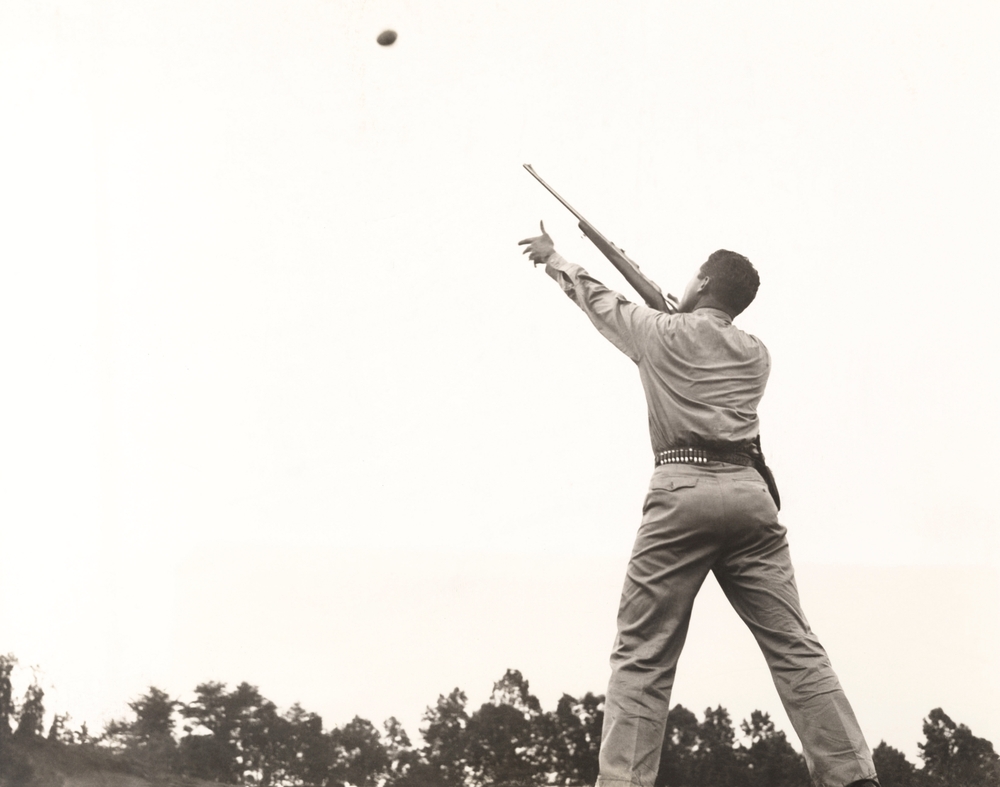In the 1920s, in the quaint landscapes of Massachusetts, skeet shooting was born out of the ingenuity of Charles Davis, a passionate grouse hunter, and William Harnden Foster, a creative illustrator and writer. These two individuals shared a common goal: to create a sport that could mimic the unpredictability and thrill of bird hunting. The sport they developed was initially called "shooting around the clock," owing to its original circular layout.
The name 'skeet' was adopted following a contest to rename the sport, with its roots in the Scandinavian word for "shoot." This marked the beginning of a journey that would see skeet shooting carve its unique niche in the world of sports.
The Growth and Spread
Skeet shooting's popularity surged in the United States, leading to the establishment of the National Skeet Shooting Association (NSSA) in 1928. The initial setup of one trap and a circular range soon evolved into a more structured arrangement, featuring eight stations in a semi-circle and two trap houses, one high and one low. This structure is what we recognize today in skeet ranges across the globe.
A Tool in Wartime
The sport's trajectory took a significant turn during World War II. The U.S. military, recognizing the potential of skeet shooting as a training tool, employed it to train aerial gunners. This not only brought technological advancements in firearms and target-launching equipment but also solidified skeet shooting's place as a respected and valuable discipline.

Post-War Developments and Olympic Glory
In the post-war era, technological improvements continued to enhance skeet shooting. The sport's international spread was remarkable, with organizations and enthusiasts worldwide embracing it.
A major milestone in the history of skeet shooting was its inclusion in the Olympic Games in 1968, initially for men and later extending to women in 2000. This was a significant leap, underscoring the sport's global appeal and the growing recognition of gender inclusivity in sports.
The Modern Era: Technology and Culture
As we ventured into the modern era, skeet shooting embraced technological advancements. Electronic controls and voice-command release systems modernized the sport, while computerized scoring added efficiency and accuracy. Safety and equipment also saw substantial improvements, reflecting the sport's commitment to responsible practices.
The recent years have witnessed a remarkable shift in skeet shooting's social and cultural landscape. The sport, traditionally seen as male-dominated, has increasingly welcomed women and young shooters, reflecting a broader trend towards inclusivity in sports. Environmental sustainability has also come to the fore, with the introduction of biodegradable targets and lead-free ammunition, showcasing the sport's adaptability to global ecological concerns.
The Heart of Community and Legacy
Throughout its evolution, skeet shooting has not just been about the sport itself but also about the community it fosters. Clubs like Northlake Shooting Sports epitomize this, focusing on nurturing young talent and building a sense of camaraderie among enthusiasts. From its grassroots beginnings to its status as a revered Olympic discipline, skeet shooting has always been about bringing people together, celebrating shared passions, and creating lasting legacies.
The Story Continues
The story of skeet shooting is a vibrant tapestry woven with innovation, cultural shifts, and a deep-seated love for the sport. It has evolved with the times while staying true to its core ethos of sportsmanship and excellence. As skeet shooting continues to evolve, it carries with it the legacy of its humble beginnings and the promise of an exciting, inclusive future.
Northlake Shooting Sports is Leading in Educating Active Skeet Shooters
If you're looking for the best education and training in Skeet Shooting in Texas, then Northlake Shooting Sports has multi-gold olympic medalists and some of the best shooters in the world teaching skeet shooting. There's no better place to learn as a professional sport or recreationally! Come on in and meet our amazing team!
